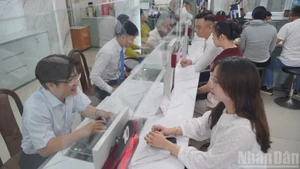It said the projection was based on the strong set of data in the second quarter of 2022 (Q2) and a historical track record of a generally robust H2 performance.
According to the bank, data released by the General Statistics Office of Vietnam (GSO) on June 29 showed Vietnam’s real GDP growth surprised in Q2, expanding 7.7% year-on-year from 5.0% in Q1, surpassing the UOB’s estimate of 6.0% year-on-year.
The sharp rebound in Q2 GDP was driven by manufacturing activities which accelerated for the 4th straight quarter, and a recovery in services output as it continued to regain its footing since the last contraction in the third quarter of last year.
For the first half of 2022, Vietnam’s GDP rose 6.4% year-on-year on the back of a 9.7% gain in the manufacturing sector and 6.6% in services output. Other monthly data released suggest that activities have generally returned to normal after restrictive COVID-19 measures were eased and borders reopened.
The UOB said inflationary pressures on Vietnam are manageable as the main source of impact is energy related while food prices are stable. However, upside risks are significant given the rapid pace of gains in energy prices which will eventually spread to the rest of the economy, especially if higher prices persist.
With the latest set of data, the bank anticipated an official forecast of 6.0 – 6.5% to be revised higher, although downside risks remain. These include the impact of the ongoing Russia-Ukraine conflict on geopolitical developments, energy and food prices, and supply chain disruptions.
“In addition, the US Federal Reserve (Fed)’s aggressive policy bias could be another source of financial market risk for emerging economies such as Vietnam,” it said.
Amidst these uncertainties and despite a more robust domestic economy, there is room for the State Bank of Vietnam (SBV) to stay patient and keep its policy rate steady for now to support the recovery efforts, especially with inflation within its target range.
As such, the UOB expected the current refinancing rate at 4.0% and rediscounting rate at 2.5% to remain at these record low levels until at least the end of 2022.
The bank also expected Asia’s emerging currencies such as the VND to be weighed as the Fed looks set to front load its rate hikes further in H2. As such, it forecasts the USD/VND to be on a steeper upward trajectory in the months ahead. Its USD/VND forecasts are at 23,400 in the third quarter of 2022, 23,500 in the fourth quarter of this year, 23,550 in the first quarter of 2023, and 23,600 in the second quarter of 2023.
















